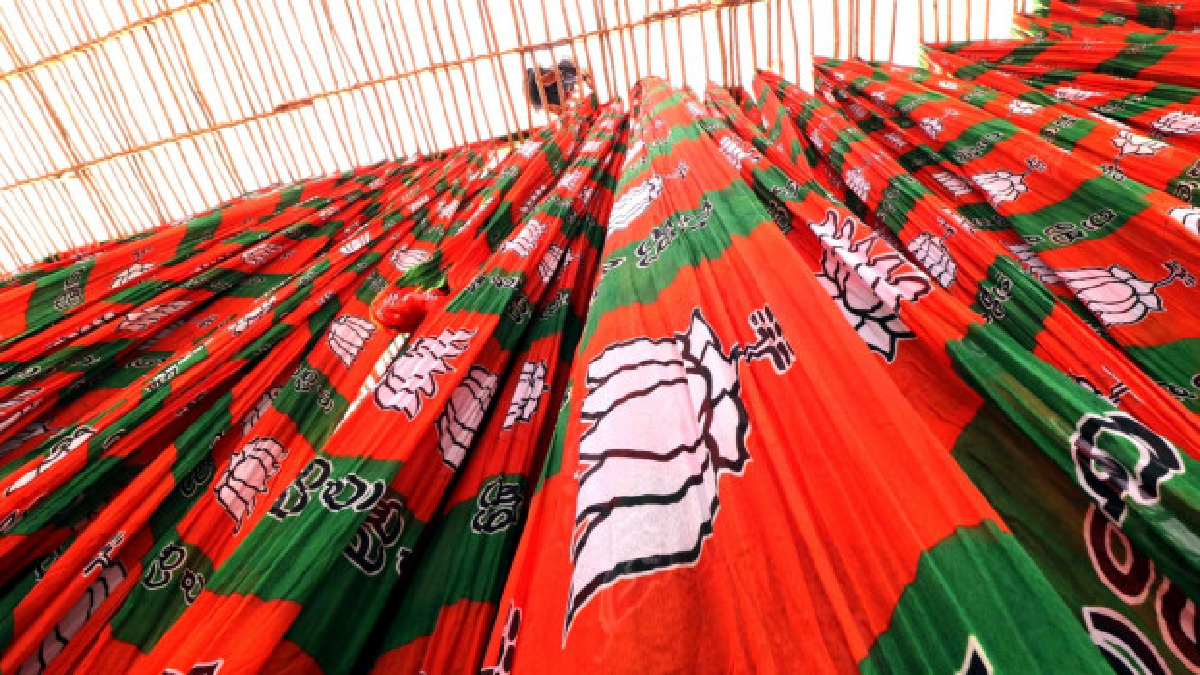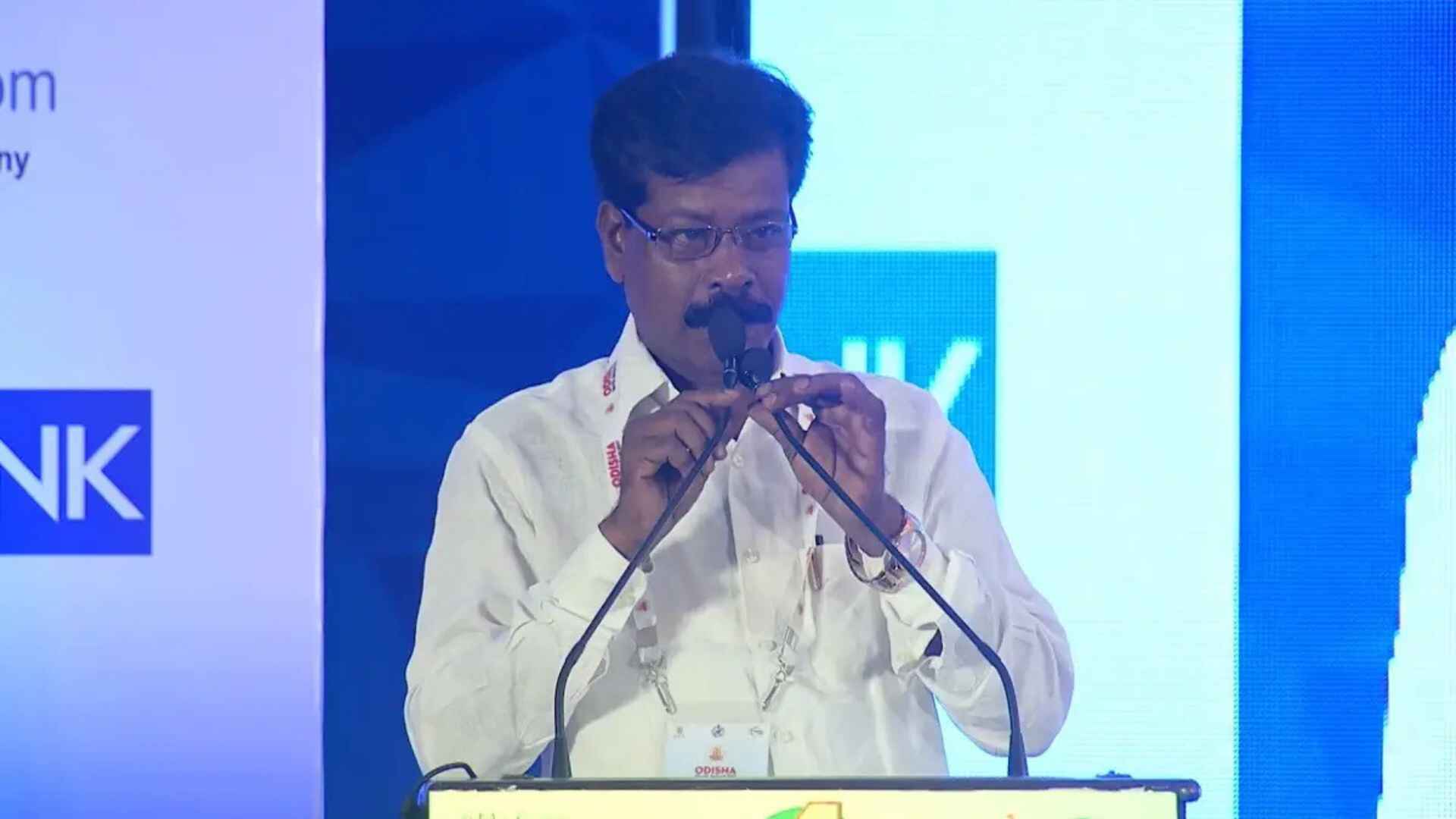The Patidar Samaj has been a powerful force in Gujarat politics, with 15 per cent of the state’s electorate, or 71 Patidars, dominating the Assembly seats. To persuade them, the BJP has sent two Patidar Union ministers on a tour. Both the Union Ministers are trying to win the trust of the Patidars, as the BJP will have to cross the target of more than 150 seats in the next 2022 Assembly elections, to win back the Patidar vote bank, a BJP internal survey has found. In the 2017 elections, the BJP lost 8 seats due to the Patidars.
Normally, when Assembly or Lok Sabha elections are held in Gujarat, Patidar leaders start talking about the dominance of the society, while political parties try to get the votes of the Patidars by indulging in the politics of casteism. Patidar voters were in the spotlight due to the Patidar reservation movement in the 2017 Assembly elections, while before the 2022 Assembly elections, Naresh Patel, the leader of the Patidar community in Khodaldham, has once again begun to highlight the “dominance” of the Patidars by stating that a “Patidar should be the Chief Minister”. On the other hand, as soon as a political debate in the name of the Patidar Samaj started once again in Gujarat, the BJP has also started making statements to get the trust of Patidars with the visit of Patidar Union Ministers in the constituency considered as the stronghold of Patidars.
In Gujarat, four chief ministers were formed amidst the dominance of Patidar voters, in which Chimanbhai Patel and Keshubhai Patel could not stay in power for five years, though they became Chief Ministers twice. Looking at history, no Patidar Chief Minister from Babubhai Patel to Keshubhai Patel could complete his term. Babubhai was in crisis, Chimanbhai was in “Navnirman Andolan” for the first time, he died during the second term as Chief Minister; Keshubhai Patel was overthrown once by BJP rebels, and a second time by Delhi, as the high command demanded his resignation and removed him from power. Anandiben Patel gave the excuse of age, but she was overwhelmed by the results of the Patidar reservation movement and the local elections.
After the departure of Narendra Modi from Gujarat, the Patidars gained momentum. In 2015, despite Anandiben Patel being the first woman Chief Minister of Gujarat, the Patidar reservation movement started, which led to her resignation. Not only that, the Patidars were getting annoyed with the BJP. Due to this, in the Gujarat Assembly elections in 2017, the BJP got only 99 seats and the Congress got about 83 seats. Even then, the BJP’s vote share rose by 1 per cent and the Congress’ by 2 per cent. The BJP had 115 seats in the 2012 Assembly elections, which dropped to 99 in 2017. While the Congress won 16 more seats in 2017, it benefited from the Patidar reservation movement.
So far, there were two main parties in Gujarat—the BJP and Congress. Whenever there is a third front in Gujarat, the ruling party BJP gets the benefit, because the vote share in the third front is cut only by the Congress. So far, Shankarsinh Vaghela had formed the Jan Vikalp Party after the RJP. Keshubhai Patel formed the Gujarat Parivartan Party. Then came MJP. Apart from this, NCP, BSP and Aam Aadmi Party (AAP)also tried, but there is no third front in Gujarat.
The AAP did well in the local body elections in Gujarat. In particular, in the Surat Municipal Corporation elections, Patidars won 27 seats in the dominated area. However, the 26 seats won by the Congress in the 2016 municipal elections went to AAP. Kadwa and Leuva Patidars in the state have a direct impact on elections due to being 15 per cent of the population. In view of the results of the 2012 and 2017 Assembly elections, in 2012, out of a total of 182 MLAs in Gujarat, 50 MLAs were Patidars, out of which 36 MLAs were elected from the BJP. The equation changed after the Patidar agitation in 2015 and the Congress Patidar seat increased. In the 2017 Assembly elections, the BJP won 28 and the Congress 20 Patidar MLAs, which means that in 2017, the BJP lost 8 Patidar MLAs.
Gujarat has 50 seats with the highest number of Patidars, including Unjha, Visnagar, Bahucharaji, Gandhinagar North, Mehsana, Vijapur, Himmatnagar, Mansa, Ghatlodia, Vejalpur, Thakkarbapanagar, Naranpura, Nikol, Naroda, Maninagar, Sabarmati, Dhrangadhra, Morbi, Daskaroi, Viramgam, Rajkot East, Rajkot South, Jasdan, Gondal, Jamjodhpur, Manavadar, Junagadh, Visavadar, Keshod, Dhari, Amreli, Lathi, Savarkundla, Jetpur, Dhoraji, Jamnagar Rural, Sayajiganj, Botad, Kamrej, Surat. Apart from this, Patidars are also in the seats of Akota, Vaghodia, Rawpura, Manjalpur, Talaja, Rapar, Jamnagar South, Bhavnagar Rural, Borsad, Anklav, Matar, Mahudha, Kapadvanj, Padra, Nandod, Jambusar, Bharuch, Navsari, Shehra, Kalol, and Bapunagar. In Gujarat, there are currently 44 BJP MLAs, 6 MPs and three MPs in the Rajya Sabha.












